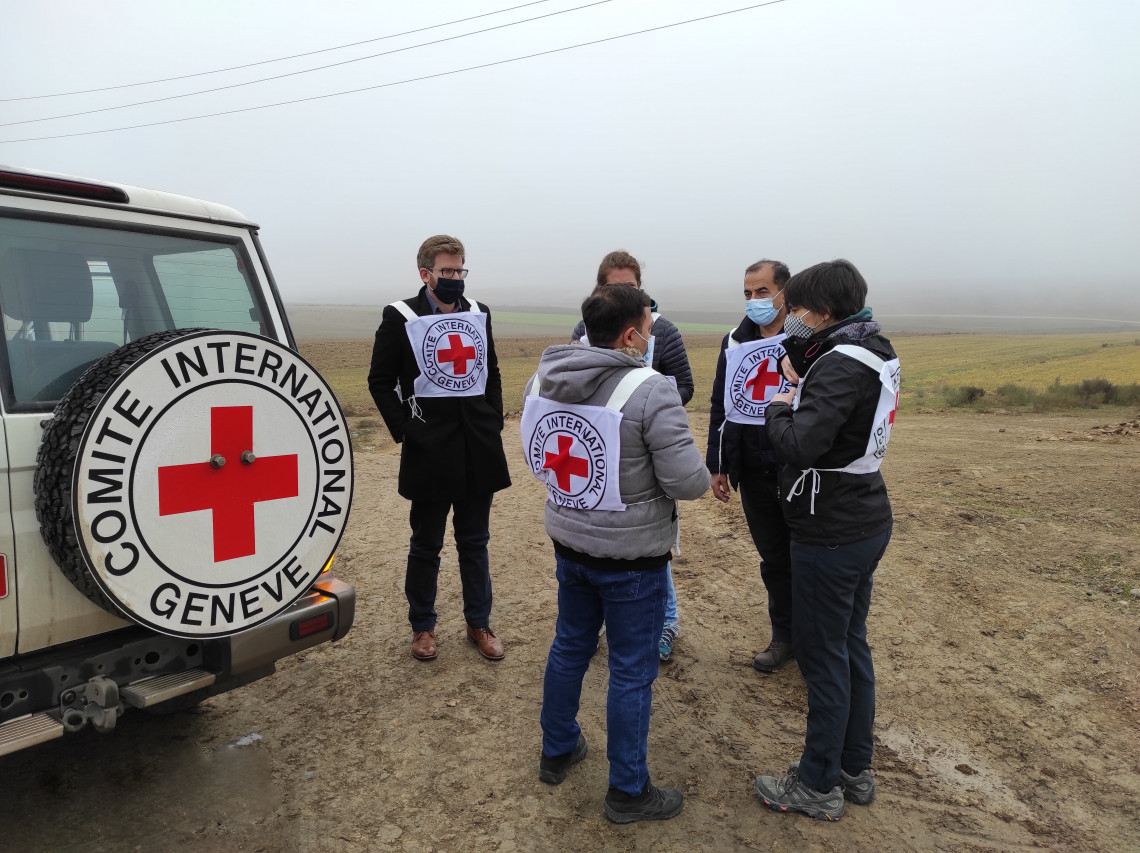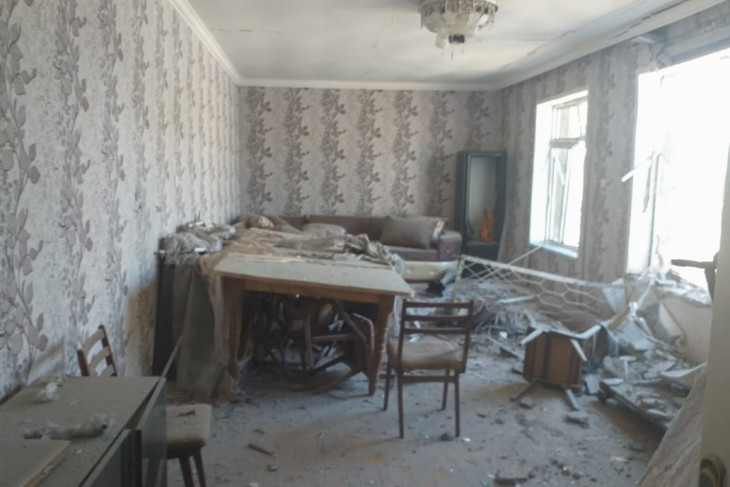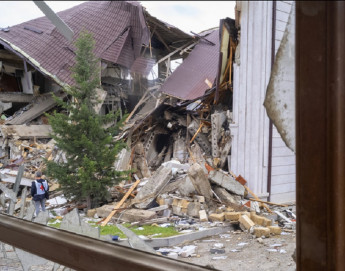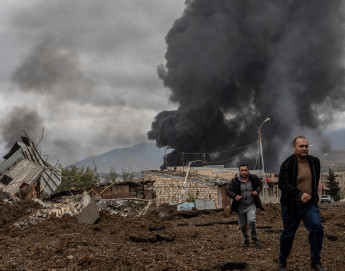
Nagorno-Karabakh conflict: Operational Update December 2020
One month after a ceasefire deal in the Nagorno-Karabakh conflict came into effect, hundreds of thousands of people remain deeply affected across the region, with humanitarian needs expected to worsen during winter.
The autumn escalation caused devastation: civilians were killed and injured, hundreds of homes and vital infrastructure such as schools and hospitals were destroyed. Unexploded weapons remain in populated areas, posing a threat to life and limb. The fighting forced people to leave their homes in search of safety, crowding into temporary accommodation or with friends and families, while tens of thousands of families lost their homes in the fighting or aftermath. People's jobs and livelihoods have been hard hit.

Thousands of homes were damaged in the escalation. APA/Nijat Alili
Many families are also enduring an agonizing wait and long to know what happened to their loved ones or to bury those who lost their lives with dignity. Of key importance now is helping to facilitate the rapid retrieval and transfer of the remains of people killed during the fighting. The ongoing operations to recover bodies from the battlefield are extremely dangerous because the terrain is littered with mines and unexploded ordnances. What's more, the winter weather means conditions are often treacherous, with sub-zero temperatures, dense fog and heavy snow making movements difficult and slow, and rain and mud often dislodging mines in the areas where teams are working.
In our role as a neutral intermediary, the ICRC is supporting the sides in organizing such operations. We have been present, along with Russian peacekeeping forces, at dozens of such recovery operations as the sides enter the battlefield to retrieve remains from the trenches and fields. Our aim is to facilitate communication between the sides, to help such operations proceed as quickly and smoothly as they can to increase the chance of finding bodies. Our presence relies on having the necessary security guarantees for our team to carry out their work.
Detainees are also a priority for us. So far, we have visited dozens of prisoners of war and civilian detainees. Many have received news from their families through the transmission of Red Cross Messages and oral greetings from their loved ones. This is an important emotional life-line for many of detainees and their families, and often the proof for families that their loved ones are alive. We have also received thousands of calls and visits from families of missing people in the region, and logged hundreds of tracing requests for both civilians and soldiers.
The ICRC will continue to support the victims of this conflict in the region. Together with the Armenian Red Cross and the Azerbaijani Red Crescent, our teams are evaluating the humanitarian needs and are doing their utmost to reach people in need of help.
Some of the main humanitarian needs and concerns right now:
- Support on retrieval and transfer of dead bodies
- Tracing missing people
- Access to all prisoners of war and civilians and exchange of Red Cross messages/ establishment of family contacts
- Food and winter supplies for people displaced or returning home after displacement
- Shelter support – heating, repairs to buildings, hygiene facilities, clean water
- Mental health and psychosocial support
- Damage to civilian infrastructure such as water systems
- Extensive weapon contamination in urban and rural areas affected by fighting
- A surge in Covid-19 cases and medical facilities under pressure

A child displaced as a result of the Nagorno-Karabakh escalation. ICRC/Gohar Hakobyan
This is a summary of our main humanitarian activities from across the region, as of early December:
HEALTH CARE
15 hospitals and medical facilities received medical supplies, including medicine, dressing and kits to treat weapon wounded patients, as well as blankets and hygiene items
12 oxygen supply sockets installed in a Covid-19 treatment ward
300 sets of medical tunics distributed to health authorities
42 first aid kits distributed
723 families received mental health support
45 community volunteers trained to conduct emergency psychosocial sessions for children and youngsters
ECONOMIC SECURITY
More than 23,000 people have received food parcels and personal and household hygiene items
More than 31,000 people have received household items, such as bed linen, mattresses, foldable beds, pillows.
400 heaters distributed, and 1,400 kitchen sets distributed
Around 8000 families have received financial assistance (approximately 37,000 people)
21,700 woollen blankets distributed to people uprooted from their homes
WATER AND HABITAT SUPPORT
3 hospitals received shelter materials and construction items to temporarily fix damage
17 generators provided
4 pre-schools renovated to provide access to better heating and water
66 families in shelters have access to newly-installed showers and latrines
100 stoves distributed to families in 7 shelters
WEAPON CONTAMIMATION
More than 3850 people briefed about the risks of explosive remnants of war
70 teachers trained on delivering risk awareness sessions in schools, so children know about the dangers of unexploded weapons.
10 protection kits and a detector to be donated to help local mine clearance teams
EDUCATION
360 children received touchscreen tablets, so they can continue their education remotely
100 children received school supplies – schoolbags, notebooks, pens, pencils and workbooks
For further information, please contact:
Zara Amatuni, ICRC delegation, Yerevan, tel: +374 99 011 360
Ilaha Huseynova, ICRC delegation, Baku, tel: +994 50 316 00 24
Eteri Musayelyan, ICRC Nagorno-Karabakh mission, tel: +374 97 29 80 85
Ruth Hetherington, ICRC Geneva, tel: +41 79 447 37 26




